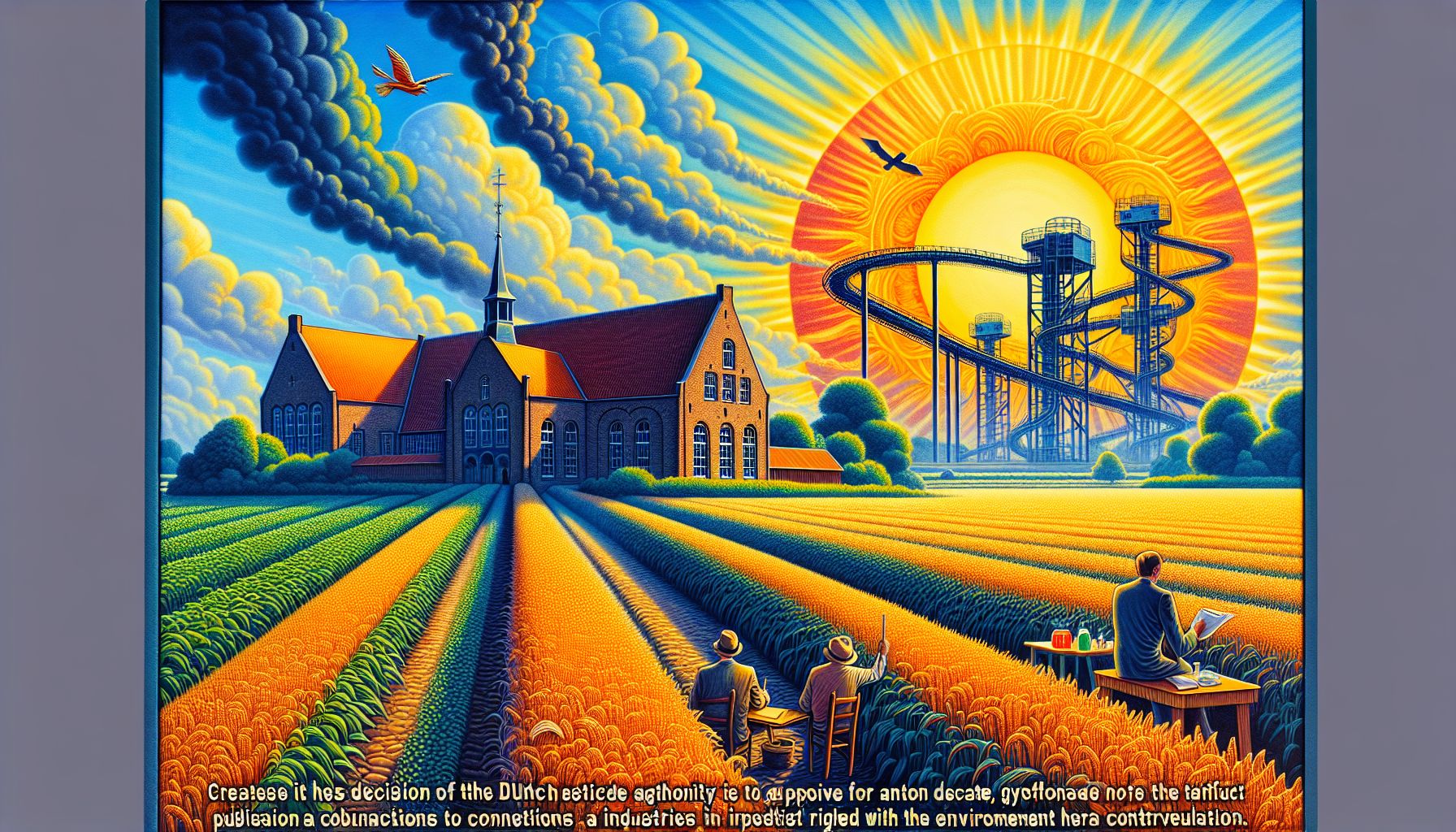Dutch Pesticide Authority's Glyphosate Approval Tied to Controversial Expert

The Hague, Monday, 30 September 2024.
The Dutch pesticide authority CTGB approved glyphosate for another decade, relying on publications by Kenny Crump, a statistician with ties to industries known for environmental issues. This decision raises concerns about potential conflicts of interest in pesticide regulation.
Conflict of Interest Uncovered
An investigation by Zembla revealed that Kenny Crump, whose publications were pivotal in CTGB’s decision, has a history of working for industries linked to environmental pollution, including asbestos, diesel, and lead. Notably, Crump has also recently collaborated with Bayer, the manufacturer of glyphosate[1]. This conflict of interest was not disclosed in CTGB’s approval report, prompting criticism from experts and environmentalists.
Criticism from the Scientific Community
Naomi Oreskes, a history of science professor at Harvard University, criticized Crump’s involvement, highlighting his defense of substances like benzene and asbestos, which are confirmed carcinogens. ‘This is a man who has defended benzene and asbestos,’ Oreskes told Zembla. ‘These are substances that have been definitively proven to cause cancer,’ she emphasized[1].
Questionable Scientific Methods
CTGB’s approval report stated that tumors found in animals exposed to chemicals might be due to ‘chance,’ a determination based on Crump’s publication. Additionally, another study by Crump was cited to argue that population studies linking cancer risk to farmers might not be reliable[1]. This methodology has been criticized by other scientists, including Geert de Snoo from Leiden University, who described it as ‘flawed science and bad statistics’ that obscure the real cancer risks[5].
Calls for Reevaluation
The reapproval of glyphosate in the European Union in November 2023 for another 10 years has sparked calls for reevaluation. Prominent scientists, including Geert de Snoo and Martina Vijver from Leiden University, have demanded a reassessment of all pesticides approved in the Netherlands due to their potential health risks[5]. The OECD has also advised against the bi-sided testing method used by CTGB, which allegedly diminishes cancer risk findings[5].
The Broader Impact
Glyphosate, introduced by Monsanto in the 1970s under the brand name Roundup, remains one of the most widely used chemical herbicides globally. Despite its popularity among farmers for weed control, the World Health Organization (WHO) labeled glyphosate as likely carcinogenic in 2015[1]. In the Netherlands, glyphosate is banned for non-commercial use but was reapproved for commercial use in 2023, aligning with the European Union’s decision[1].
Conclusion
The CTGB’s reliance on publications by a controversial expert has raised significant concerns about the integrity of pesticide regulation processes. The undisclosed conflicts of interest and questionable scientific methods highlight the need for greater transparency and rigorous reassessment to ensure public health and environmental safety.

